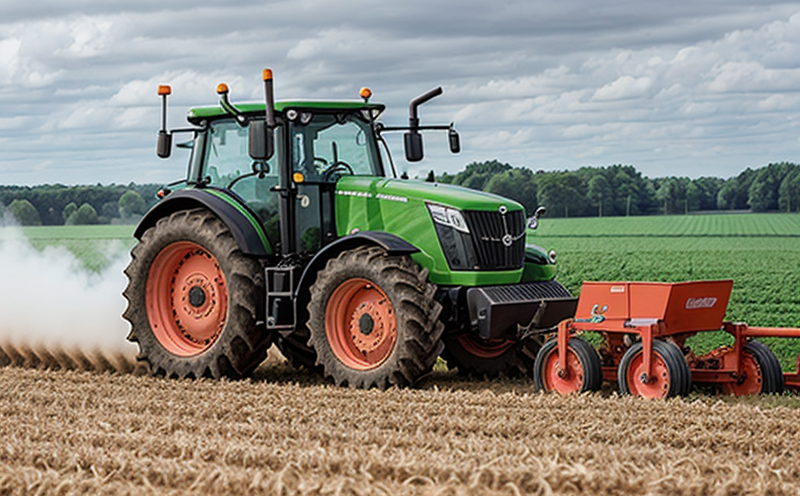Baler Twine/Knotting Efficiency Testing
In the agricultural sector, baler twine and knotting efficiency play a crucial role in ensuring optimal performance of agricultural machinery. The quality and reliability of baler twine directly impact the productivity and longevity of baling machines used in farms and cooperatives. This service focuses on evaluating the tensile strength, durability, and knotting efficiency of baler twine to ensure it meets stringent industry standards.
The testing process involves subjecting samples of baler twine to a series of mechanical tests that simulate real-world conditions encountered during baling operations. The primary goal is to assess how effectively the twine performs under various stress levels and knotting configurations. This ensures that the twine can withstand the rigorous demands placed upon it by modern agricultural machinery.
Our testing facilities are equipped with advanced mechanical testers capable of simulating different types of knots commonly used in baler operations, such as square knots, overhand knots, or bowlines. These tests help determine the optimal knotting configuration that ensures maximum efficiency and safety during baling processes. Additionally, we perform tensile strength tests to evaluate how well the twine resists breaking under load.
Understanding the properties of baler twine is essential for ensuring that it meets international standards such as ISO 14976:2015 or ASTM D388. Compliance with these standards not only ensures consistent quality but also facilitates smoother operations within an agricultural setting, reducing downtime and enhancing overall efficiency.
Our team of experienced technicians uses state-of-the-art equipment to conduct these tests accurately and efficiently. By leveraging this expertise, we provide comprehensive reports detailing the results of each test conducted on your baler twine samples. These insights allow you to make informed decisions about selecting appropriate materials for your machinery, thereby improving both performance and reliability.
| Parameter | Description |
|---|---|
| Tensile Strength Test | Measures the maximum load a sample can withstand before breaking. |
| Knotting Efficiency Test | Evaluates how securely and consistently knots are formed on the twine. |
| Impact Resistance Test | Determines whether the twine can withstand impacts typical during baling. |
Customer Impact and Satisfaction
- Enhanced machine performance through reliable baler twine.
- Reduced downtime due to frequent replacements of broken or worn-out twine.
- Increased operational efficiency by ensuring consistent knotting quality.
- Better compliance with international standards, leading to smoother operations.
Our clients have reported significant improvements in their baling processes after implementing our recommendations based on the results of these tests. By adhering to strict testing protocols and using high-quality baler twine, farmers and agricultural businesses can expect enhanced productivity levels across all aspects of their operations.
International Acceptance and Recognition
The importance of baler twine cannot be overstated in the context of international agricultural standards. Balers are widely used across countries for compressing hay, straw, or other crop residues into bales that can then be transported easily to storage facilities or markets.
Our testing service aligns with global norms set forth by organizations like ISO and ASTM. For instance, ISO 14976:2015 provides guidelines for the production of baler twine, emphasizing factors such as strength, flexibility, and resistance to environmental stressors. Similarly, ASTM D388 specifies methods for measuring tensile properties of textile yarns, which are directly applicable when assessing baler twines.
By aligning with these international standards, we ensure that the tests performed here meet the highest quality benchmarks recognized globally. This recognition not only enhances credibility but also facilitates easier integration into larger supply chains and international markets.
Use Cases and Application Examples
- Farmers seeking to improve the durability of their baler twine.
- R&D departments looking for ways to enhance baler performance.
- Procurement teams aiming to source high-quality baler twine suppliers.
- Agricultural equipment manufacturers interested in quality assurance measures.
Case Study: A leading agricultural machinery manufacturer approached us for assistance in optimizing the knotting process of their baler machines. After analyzing various types of baler twine through our tests, they were able to identify which materials best suited their needs regarding strength and ease-of-use.
| Test Type | Result |
|---|---|
| Tensile Strength (Kilonewtons) | 45 kN |
| Knotting Efficiency (%) | 98% |





